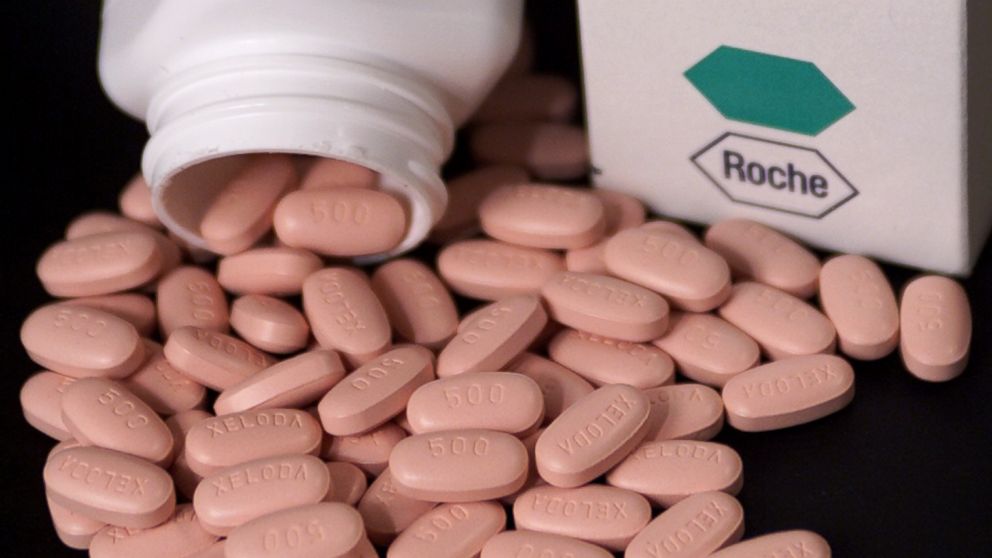Spike in Cost of Certain Oral Cancer Drugs Puts Squeeze on Patients, Study Finds
Prices have gone up multiple-fold for some drugs, a study found.

— -- As rising drug costs have become a topic of intense debate, a new review finds a significant increase for some cancer drugs.
The cost of certain oral medications for cancer treatment have increased multiple-fold since 2000, according to a study published today in the Journal of the American Medical Association.
The average cost for certain orally administered treatments have increased dramatically, even after prices were adjusted for inflation, according to a researcher at the University of North Carolina at Chapel Hill who examined data from a prescription drug database. Additionally, newer drugs cost far more than drugs already on the market, the study found.
These drugs fight cancer in a variety of ways, and are generally less stressful on the patient compared to traditional chemotherapy treatments.
These kinds of medications have become more popular since 2000, with 32 therapies introduced between 2000 to 2014. Costs for these kinds of treatment rose from an average of $1,869 a month for those launched in 2000 to $11,325 a month for the drugs launched in 2014. When she compared products launched from 2000 to 2010 to those launched after 2010, the researcher found a 63 percent increase in the mean monthly spending during the first year the product was on the market. Products launched between 2000 to 2010 cost had a mean monthly spending of $5,529 for the first year they were on the market compared to the products launched after 2010, which had a mean monthly spending of $9,013.
"The major trend here is that these products are just getting more expensive over time," study author Stacie Dusetzina, of the UNC Lineberger Comprehensive Cancer Center and an assistant professor in the UNC Eshelman School of Pharmacy and UNC Gillings School of Global Public Health, said in a statement today.
Dusetzina pointed out there has been a push to create these anti-cancer drugs for patients, but that the increasing prices may make it difficult or nearly impossible for a patient to access these new therapies.
"Patients are increasingly taking on the burden of paying for these high-cost specialty drugs as plans move toward use of higher deductibles and co-insurance -- where a patient will pay a percentage of the drug cost rather than a flat copay," Dusetzina said.
She did not speculate about why these drugs have risen in cost in recent years.
Shawn Osborne, vice president of Pharmacy and Supply Chain Services at University Hospitals of Cleveland, said these kinds of oral cancer therapies have gotten more attention recently since they have shown better outcomes for patients.
"It’s a more targeted therapy that’s typically more pleasant," than infusion chemotherapy, he said.
Because some of these drugs have shown better outcomes for patients, manufacturers are charging more, he said. Additionally, he pointed out that because the drugs are new, getting access to the drugs can be more expensive.
Many of these drugs are newer and manufacturers require that patients be strictly monitored if they are taking the drugs so that more data can be collected, Osborne said, noting that this monitoring can require expensive infrastructure.
Osborne said he suspects the drug prices will at some point stop increasing at the same high rate.
"I do think that with these drugs there's a balance out there that will be struck at some point," he said.




